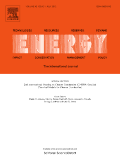
Energy
Scope & Guideline
Catalyzing Knowledge for Global Energy Progress
Introduction
Aims and Scopes
- Sustainable Energy Systems:
Research focused on the design, optimization, and integration of sustainable energy systems, including renewable energy sources like solar, wind, and hydrogen. - Energy Efficiency and Demand Management:
Studies on improving energy efficiency across buildings, industrial applications, and smart grids, emphasizing demand response and energy flexibility. - Technological Innovations in Energy:
Exploration of cutting-edge technologies such as AI, machine learning, and data analytics for enhancing energy management and operational performance. - Environmental and Economic Assessments:
Research that assesses the environmental impact and economic viability of energy systems, including life cycle assessments and techno-economic modeling. - Policy and Regulatory Frameworks:
Analysis of energy policies, market mechanisms, and regulatory frameworks that influence energy transition and sustainability.
Trending and Emerging
- Smart Grid and IoT Integration:
An increasing number of publications focus on integrating smart grid technologies and the Internet of Things (IoT) for enhanced energy management and real-time data analytics. - Decarbonization Strategies:
Research on strategies for decarbonizing energy systems, including hydrogen production, carbon capture, and the role of renewables in achieving net-zero emissions, has gained significant momentum. - AI and Machine Learning Applications:
There is a growing trend in utilizing AI and machine learning for predictive modeling, load forecasting, and optimizing energy systems, reflecting advancements in computational technologies. - Building Electrification and Energy Flexibility:
Emerging themes include the electrification of buildings and the quantification of energy flexibility, focusing on smart building technologies and their role in energy systems. - Resilience and Adaptation in Energy Systems:
Research on enhancing the resilience of energy systems to climate change impacts and extreme weather events is increasingly relevant, reflecting global sustainability goals.
Declining or Waning
- Conventional Energy Sources:
There has been a noticeable decrease in research focused on conventional fossil fuel-based energy systems, reflecting the global shift towards renewable energy technologies. - Basic Energy Storage Technologies:
Research on traditional energy storage methods, such as pumped hydro and lead-acid batteries, has diminished as interest shifts towards advanced storage technologies like lithium-ion and solid-state batteries. - Niche Renewable Technologies:
Certain niche renewable technologies, such as tidal and wave energy, have seen a decline in focus as more attention is directed towards more scalable and economically viable solutions like solar and wind.
Similar Journals

Global Energy Interconnection-China
Illuminating the Path to Sustainable Energy InterconnectionGlobal Energy Interconnection-China is an esteemed Open Access journal published by KEAI PUBLISHING LTD that focuses on the rapidly evolving fields of energy engineering and power technology. Since its launch in 2018, the journal has become a vital resource for researchers and professionals interested in sustainable energy solutions and innovative technologies, addressing the critical challenges facing the global energy landscape. With an impressive Q2 categorization in multiple engineering and energy-related disciplines, the journal ranks highly in Scopus, positioning itself as a leading platform for disseminating impactful research. Specifically, it excels in Automotive Engineering and Control and Systems Engineering, as evidenced by its competitive standing within the top quantiles of its fields. By leveraging its open access model, Global Energy Interconnection-China ensures that high-quality research is accessible to a worldwide audience, fostering collaboration and advancements in renewable energy, sustainability, and environmental conservation. For researchers, professionals, and students alike, this journal serves as a pivotal forum for sharing insights and innovations that shape the future of energy interconnection.
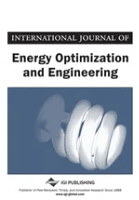
International Journal of Energy Optimization and Engineering
Empowering Sustainable Solutions in Energy ManagementThe International Journal of Energy Optimization and Engineering, published by IGI Global, is a leading platform dedicated to advancing the field of energy management and optimization. With its ISSN 2160-9500 and E-ISSN 2160-9543, this journal serves as an essential resource for researchers, professionals, and students interested in innovative strategies for energy efficiency and sustainability. Although it does not currently offer Open Access options, the journal is committed to high-quality peer-reviewed content that aims to address the pressing challenges of energy consumption, renewable resources, and optimization techniques in engineering applications. The significance of this journal in the evolving landscape of energy technologies makes it an invaluable source for those aspiring to contribute to the development of sustainable energy practices across the globe.

Journal of the Japan Institute of Energy
Exploring the Frontiers of Energy Technology.Journal of the Japan Institute of Energy, ISSN 0916-8753, is a reputable academic journal dedicated to the field of energy studies, reflecting the dynamic and evolving landscape of energy research. Published by the Japan Institute of Energy, the journal serves as a platform for disseminating innovative research, technologies, and methodologies related to energy engineering, renewable energy sources, and sustainability practices. While this journal does not currently offer open access, it remains a vital resource for professionals, researchers, and students alike, particularly those focused on advancing knowledge within Energy Engineering and Power Technology, Fuel Technology, and related areas. As of 2023, it is ranked in the Q4 quartile across several categories in Scopus, which highlights its foundational role in fostering scholarly discourse, despite its lower ranking in the competitive global landscape. Established in 1990 and continuously evolving, the journal provides insights into the challenges and innovations in the energy sector, making it an essential read for anyone invested in the future of energy solutions.

Smart Grids and Sustainable Energy
Exploring the Nexus of Technology and SustainabilitySmart Grids and Sustainable Energy, published by SPRINGER NATURE, is a pivotal open-access journal dedicated to advancing the knowledge and application of smart grid technologies and sustainable energy solutions. Serving as a key resource in the fields of Economics and Econometrics, Electrical and Electronic Engineering, and Energy Studies, this journal aims to facilitate interdisciplinary collaboration and innovation. With a commendable Q2 ranking in multiple categories as of 2023, including a top percentile placement in Economics and Econometrics and Electrical Engineering, the journal underscores its significance in driving forward research that combines economic viability with technological advancement. Researchers, professionals, and students will find a wealth of scholarly articles designed to expand understanding of the complex interplay between energy systems, sustainability, and economic factors. For those interested in cutting-edge research with high visibility due to its open-access policy, Smart Grids and Sustainable Energy is an essential addition to the academic landscape.
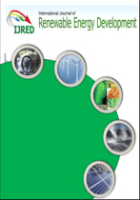
International Journal of Renewable Energy Development-IJRED
Advancing Renewable Energy Research for Global ImpactThe International Journal of Renewable Energy Development (IJRED), published by DIPONEGORO University in Indonesia, serves as a pivotal platform for scholarly research in the dynamic fields of renewable energy and sustainability. With a dedication to advancing knowledge since its inception in 2012, IJRED has embraced an Open Access model, ensuring that vital research is freely accessible to a global audience. The journal's impressive impact factor and its classification in the Q2 and Q3 quartiles across multiple categories—including Energy Engineering and Power Technology, Environmental Engineering, and Renewable Energy, Sustainability and the Environment—underscore its significance and authority in contemporary energy discourse. Indexed in Scopus, the journal consistently ranks among the top-tier publications, making it an essential resource for researchers, professionals, and students committed to innovating sustainable solutions in the face of climate challenges. Researchers are invited to contribute to this essential body of work as the journal continues to converge impactful research until 2024.
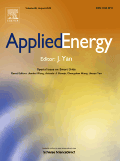
APPLIED ENERGY
Illuminating pathways to efficient energy practices.APPLIED ENERGY, published by Elsevier Science Ltd, is a leading journal dedicated to the advancing field of energy research, focusing on practical engineering solutions to contemporary challenges in energy management, sustainability, and environmental impact. With a rigorous peer-review process and a strong commitment to promoting innovative research, APPLIED ENERGY proudly holds multiple Q1 rankings across various categories, including Building and Construction, Civil and Structural Engineering, and Renewable Energy, reflecting its prestigious position within the academic community. Researchers and professionals can benefit from its comprehensive scope, covering topics that span from policy and technology to market dynamics. Although it is not an open-access journal, it provides access options that facilitate research dissemination. With its historical significance since 1975 and an ambitious outlook up to 2025, APPLIED ENERGY continues to be an essential resource for anyone looking to stay at the forefront of energy research and application.

Frontiers in Energy
Igniting Innovation in Energy Engineering and Power Technology.Frontiers in Energy is a distinguished journal published by HIGHER EDUCATION PRESS, focusing on the dynamic and rapidly evolving field of energy engineering and power technology. Established in 2011, the journal serves as a pivotal platform for disseminating innovative research findings and practical applications that address critical challenges in energy systems. With an impressive Q2 ranking in 2023 and a Scopus rank of 81 out of 272 in the discipline, it highlights the journal's influential impact within the academic community, reflecting its commitment to high-quality research. Based in Beijing, China, the journal aims to promote open and accessible scientific discussion, facilitating collaboration among researchers, professionals, and students alike. As an open access publication, Frontiers in Energy ensures that valuable knowledge is readily available to a global audience, effectively contributing to advancements in sustainable energy solutions. Join the forefront of energy innovation by engaging with cutting-edge research that shapes our energy future.

Advances in Applied Energy
Catalyzing Innovation in the Energy Sector.Advances in Applied Energy is an esteemed academic journal published by Elsevier, focusing on the dynamic and interdisciplinary field of energy applications. With its ISSN 2666-7924 and esteemed open access model initiated in 2021, this journal has rapidly emerged as a prominent platform for disseminating cutting-edge energy research, especially noted for its robust ranking as Q1 in Energy (miscellaneous) in 2023. Situated in the vibrant academic landscape of the United Kingdom, it serves as a global hub for thought leaders and innovators, evidenced by its impressive ranking as #3 out of 73 in the Scopus Ranks for General Energy, placing it within the 96th percentile in the field. This journal aims to foster collaboration, innovation, and knowledge transfer between researchers, professionals, and students, ensuring that critical advancements in energy technologies are readily available to a wide audience. Its commitment to high-quality research and accessibility further underscores its importance in shaping the future of sustainable energy solutions.
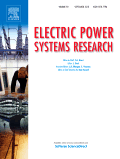
ELECTRIC POWER SYSTEMS RESEARCH
Fostering Innovation in Electric Power ResearchELECTRIC POWER SYSTEMS RESEARCH is a prestigious peer-reviewed journal devoted to the dissemination of original research and developments in the field of electric power systems. Published by Elsevier Science SA in the Netherlands, this journal has established itself as a leading platform for researchers and practitioners in the realm of Electrical and Electronic Engineering as well as Energy Engineering and Power Technology, as evidenced by its Q1 ranking in both categories in 2023. With its roots tracing back to 1977, the journal has consistently provided insightful and transformative findings that advance the understanding of electric power systems, fostering innovation and sustainability within the industry. Though not an open-access publication, it is widely accessible through various academic databases, ensuring that its valuable content reaches a broad audience. With an impressive impact factor and high Scopus rankings, ELECTRIC POWER SYSTEMS RESEARCH continues to play a vital role in shaping the future of power systems research and technology.

INTERNATIONAL JOURNAL OF GLOBAL ENERGY ISSUES
Catalyzing Interdisciplinary Research in Energy EngineeringThe INTERNATIONAL JOURNAL OF GLOBAL ENERGY ISSUES, published by INDERSCIENCE ENTERPRISES LTD, stands as a vital platform for disseminating innovative research in the fields of energy engineering, nuclear energy, and renewable sustainability. With ISSN 0954-7118 and E-ISSN 1741-5128, this journal has been catering to the energy sector since 1989, advancing scholarly dialogue through critical analyses and discussions of emerging energy technologies and policies. Though currently categorized in the fourth quartile across various energy-related disciplines, the journal aims to bridge knowledge gaps and offer insights that challenge the status quo. Operating from its headquarters in the United Kingdom and accessible to a global audience, the journal encourages submissions that drive interdisciplinary research and provide solutions for pressing global energy challenges. Researchers, professionals, and students alike are invited to contribute and engage with this prestigious journal to influence the future of energy practices.